Toasted Coconut
Here’s how to make perfectly toasted coconut, whether for snacking, for granola, or for garnishing recipes like Coconut Cream Pie. Toasting coconut in the oven gives you a crisp texture, golden color, and a wonderful nutty flavor.
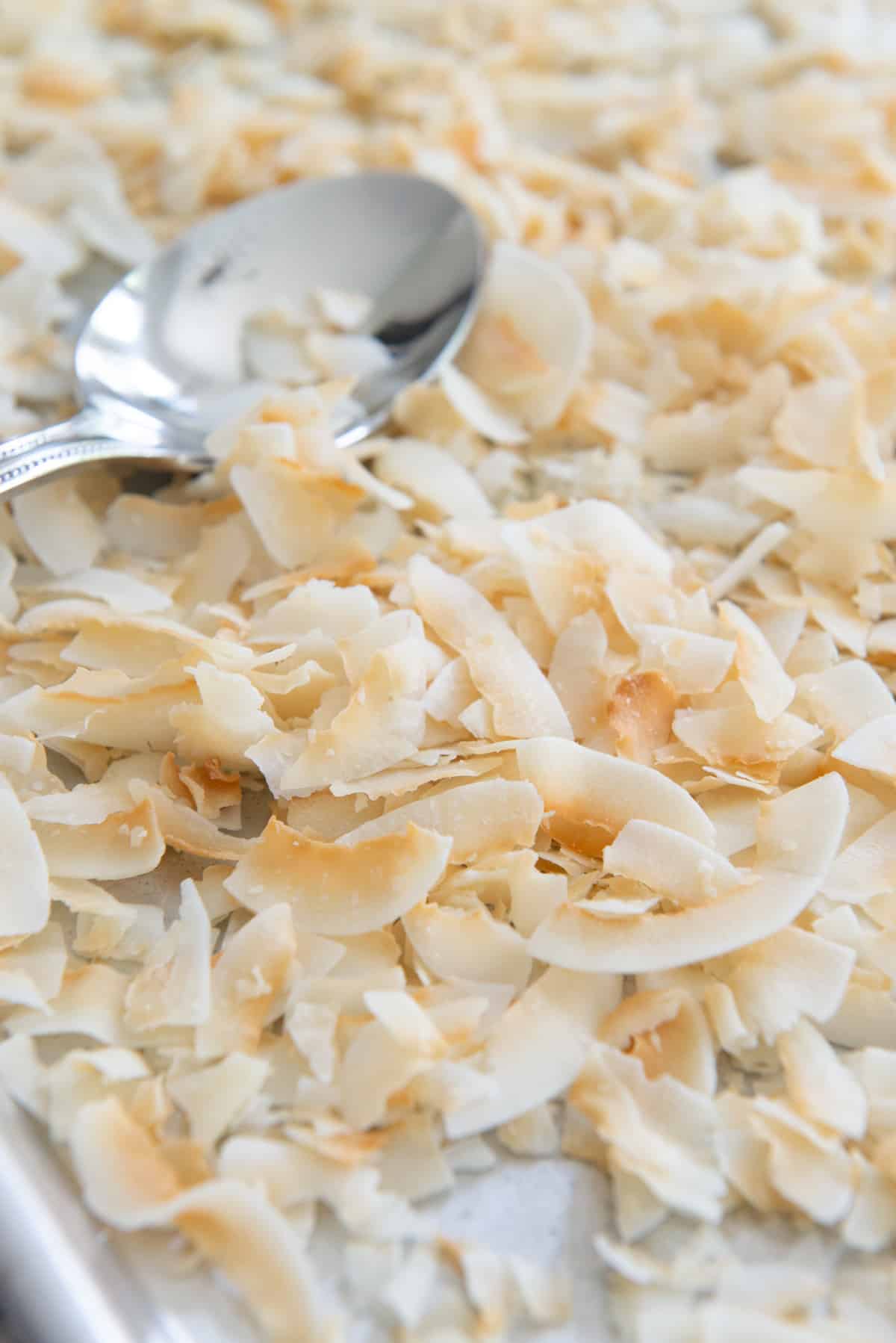
Much like toasting nuts, toasting coconut flakes makes a world of difference with flavor, aroma, and texture. To the point where I find it to be absolutely essential most of the time!
While I’ve noticed that many grocery stores will sell both toasted and untoasted coconut, the bagged toasted coconut doesn’t usually taste very good.
Why? Because it’s not fresh!
Here I have two bags from the same brand that are identical aside from the fact that the one on the left is toasted.
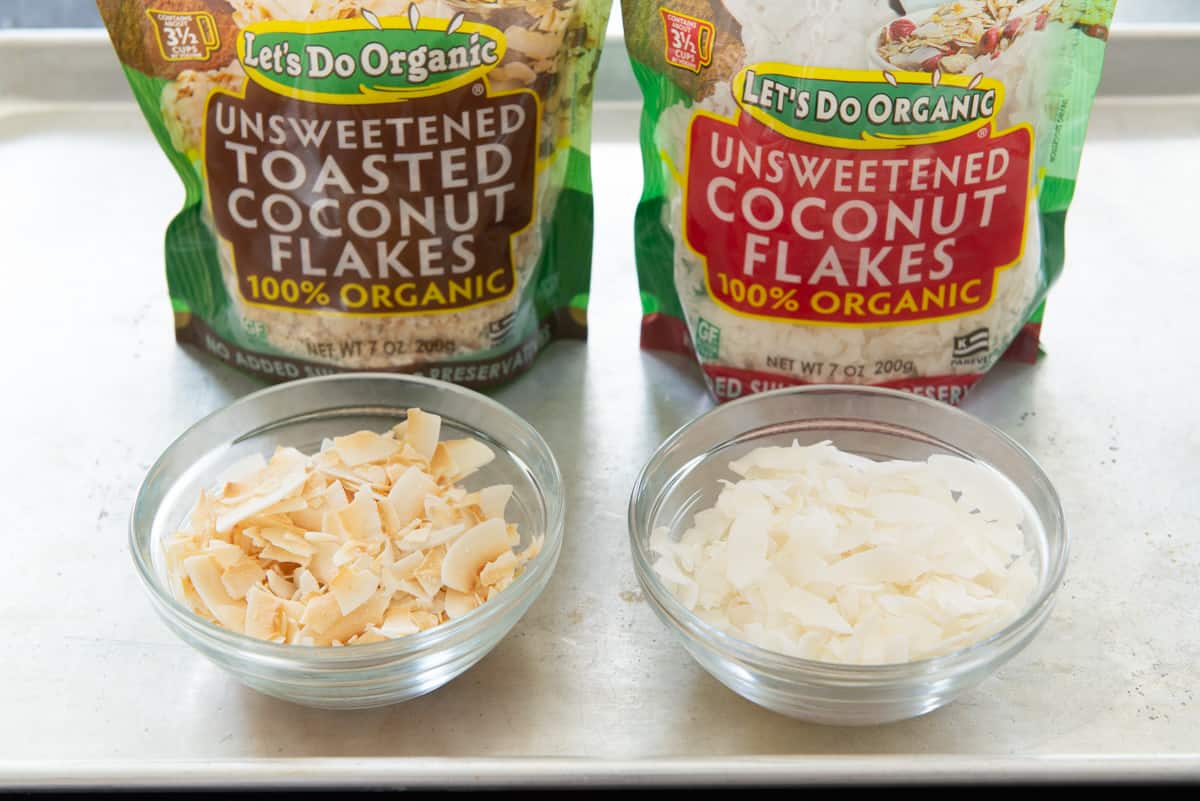
While the pre-toasted coconut looks golden and nice, and was certainly crisper than the untoasted coconut flakes on the right, it didn’t have the wonderful natural flavor and aroma that you get when you do it yourself.
Fortunately, once you learn how to toast coconut in the oven, it’s no big deal, and it’s worth the effort for coaxing out that depth of flavor.
Oven Is Best
While you can also toast coconut in a large skillet on the stove, this is more likely to give you burnt coconut because of the direct heat from below.
The oven method is best by far because it creates an evenly dry environment that toasts the coconut more evenly.
Step by Step Overview:
To get started, preheat the oven to 300 degrees F.
This temperature gives you a good balance of browning while preventing the coconut flakes from getting scorched too easily.
Add a bag of unsweetened coconut flakes to an uncoated stainless steel sheet pan or large baking sheet that’s rimmed.
There is no need to put parchment paper down unless you want to for easy clean up or something.
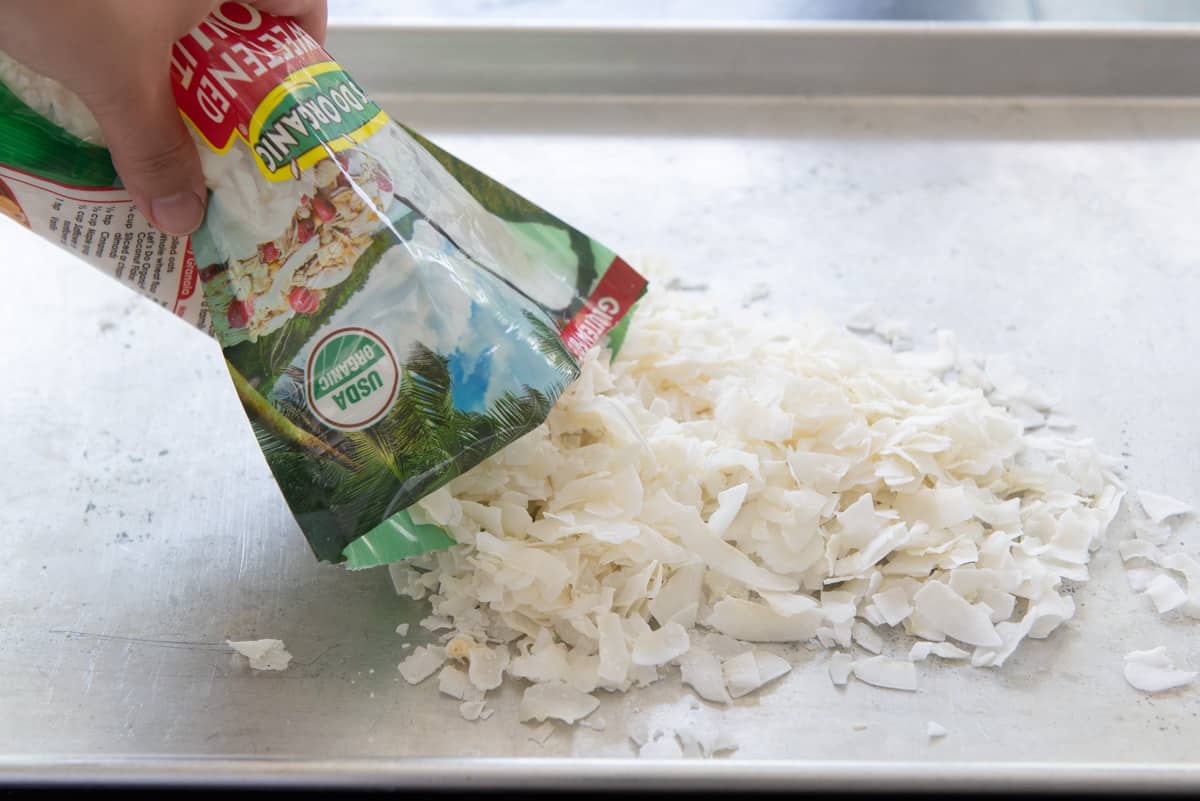
The type of coconut you use here does not matter, but you will need to reduce baking time if you’re using smaller pieces. I’m using larger flakes, so keep a close watch on the oven if you’re using the smaller shredded pieces.
Spread the flakes out evenly in a single layer. I find that using my hands is best for this job:
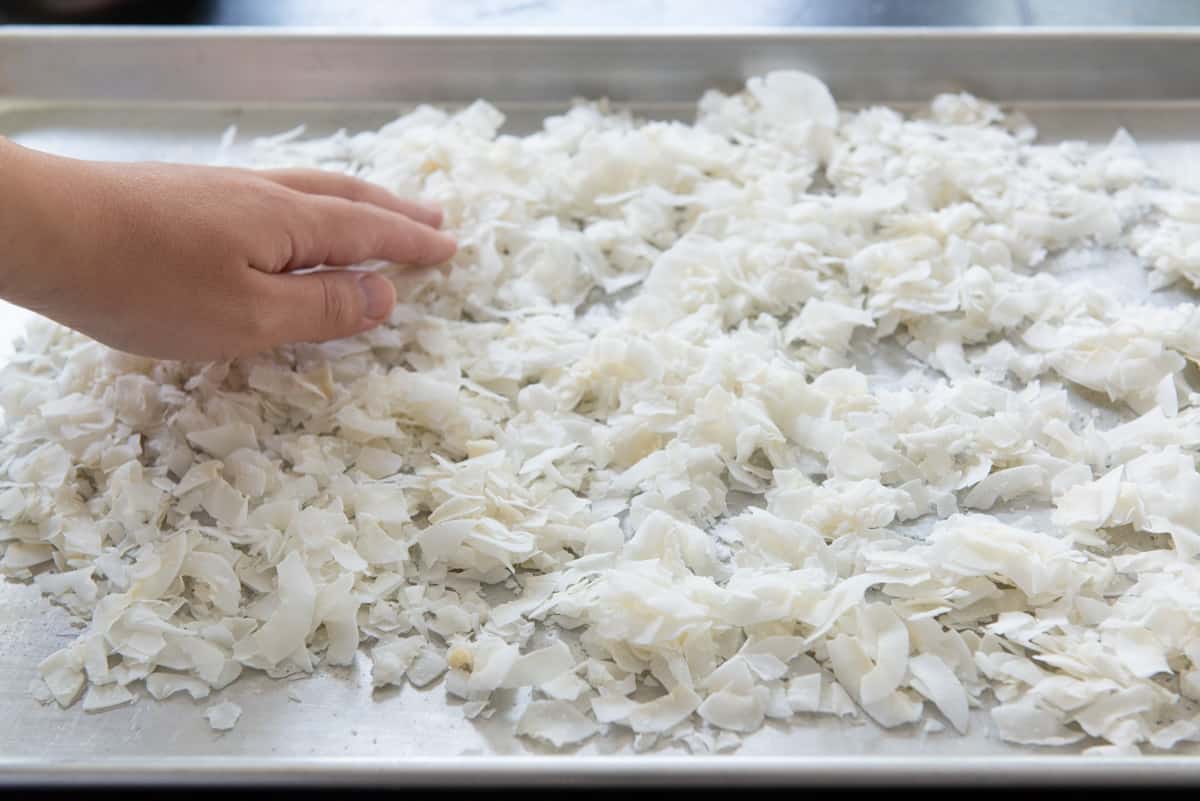
Bake the coconut for 8 minutes, and it should look something like this:
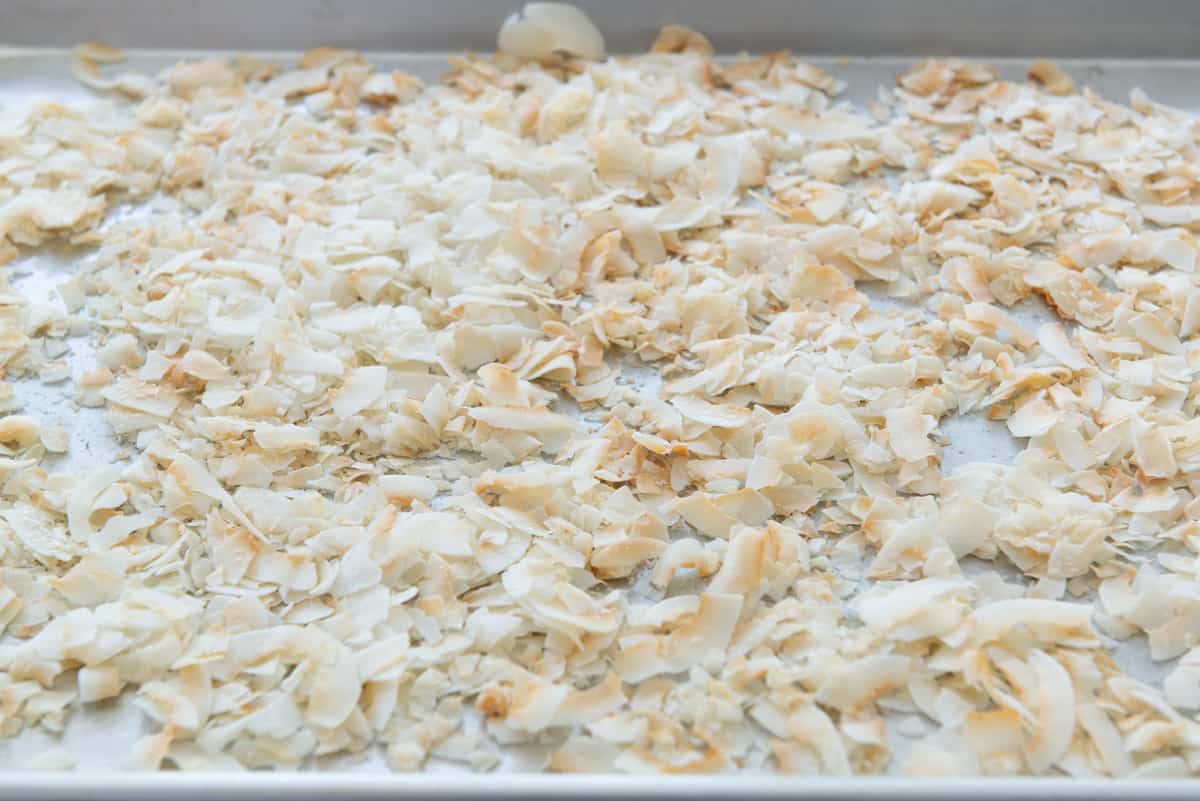
Many of the pieces should be lightly golden brown on the edges, and the pan should be fragrant.
Stir the flakes to redistribute, and spread out again into an even layer. Then place back into the oven for 3-4 more minutes, and the flakes should be just a little bit more golden:
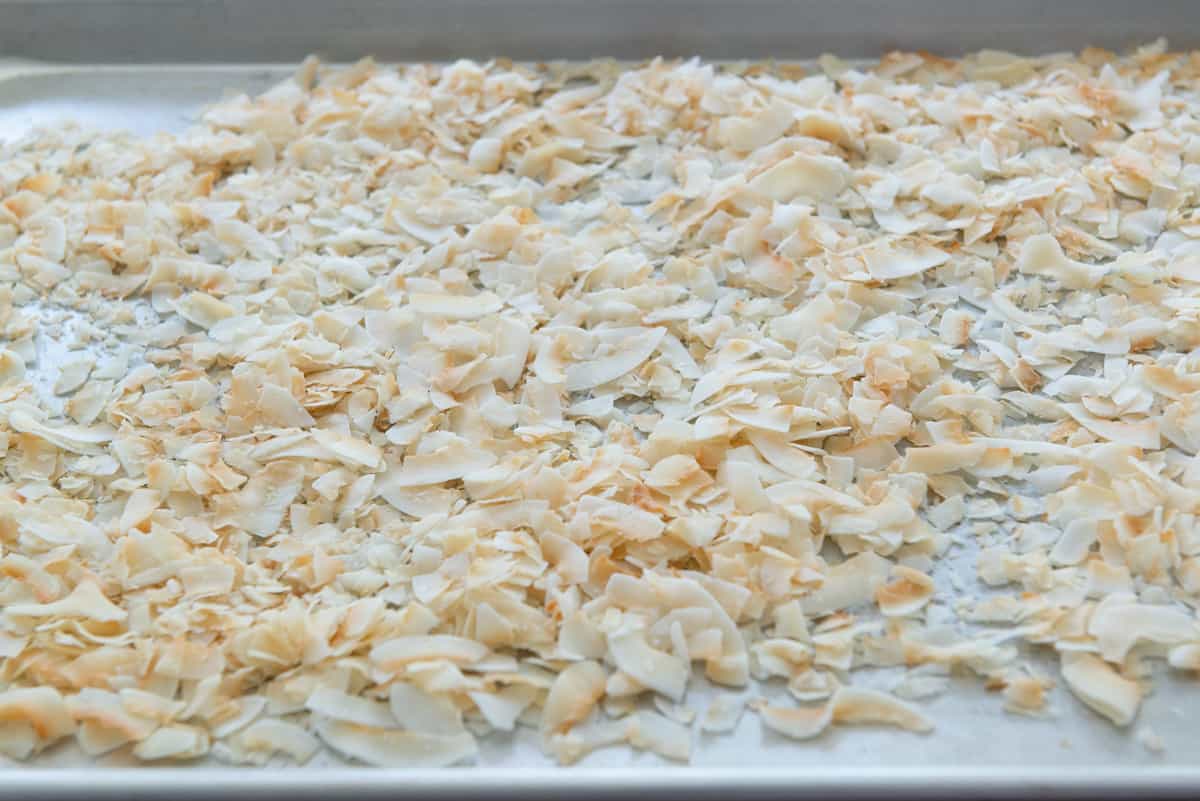
Let the coconut cool to room temperature, then scoop the flakes up and store in an airtight container to prevent a soggy texture.
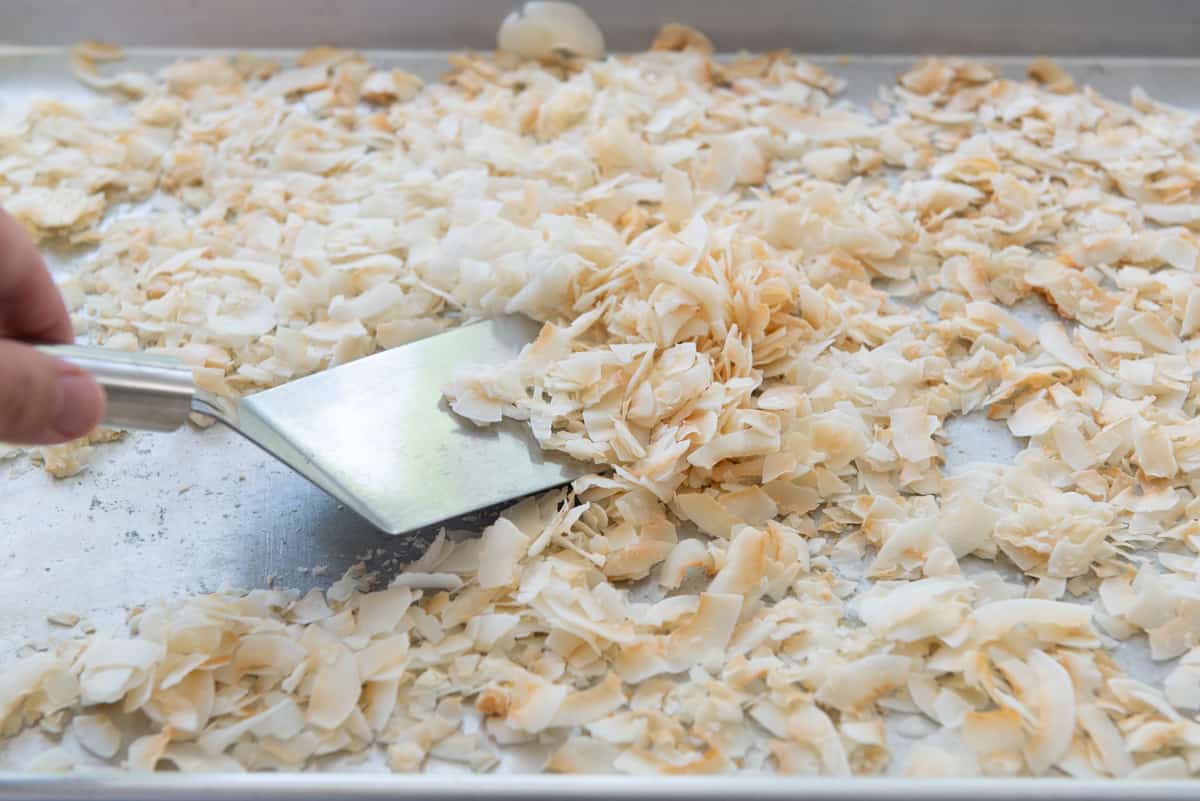
They should be wonderfully crisp after baking.
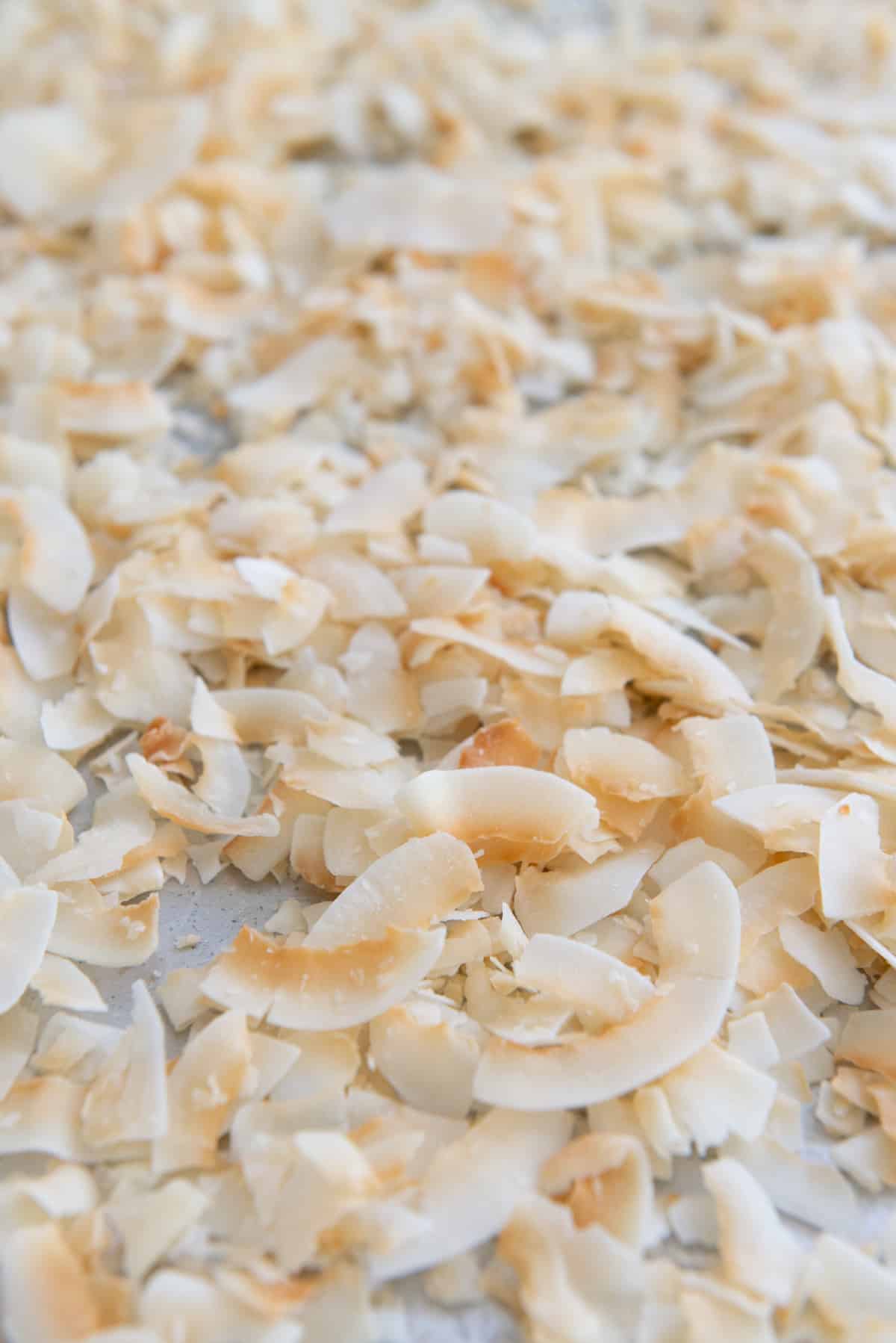
Use the toasted coconut in Granola or as the perfect garnish for my homemade Coconut Cream Pie:
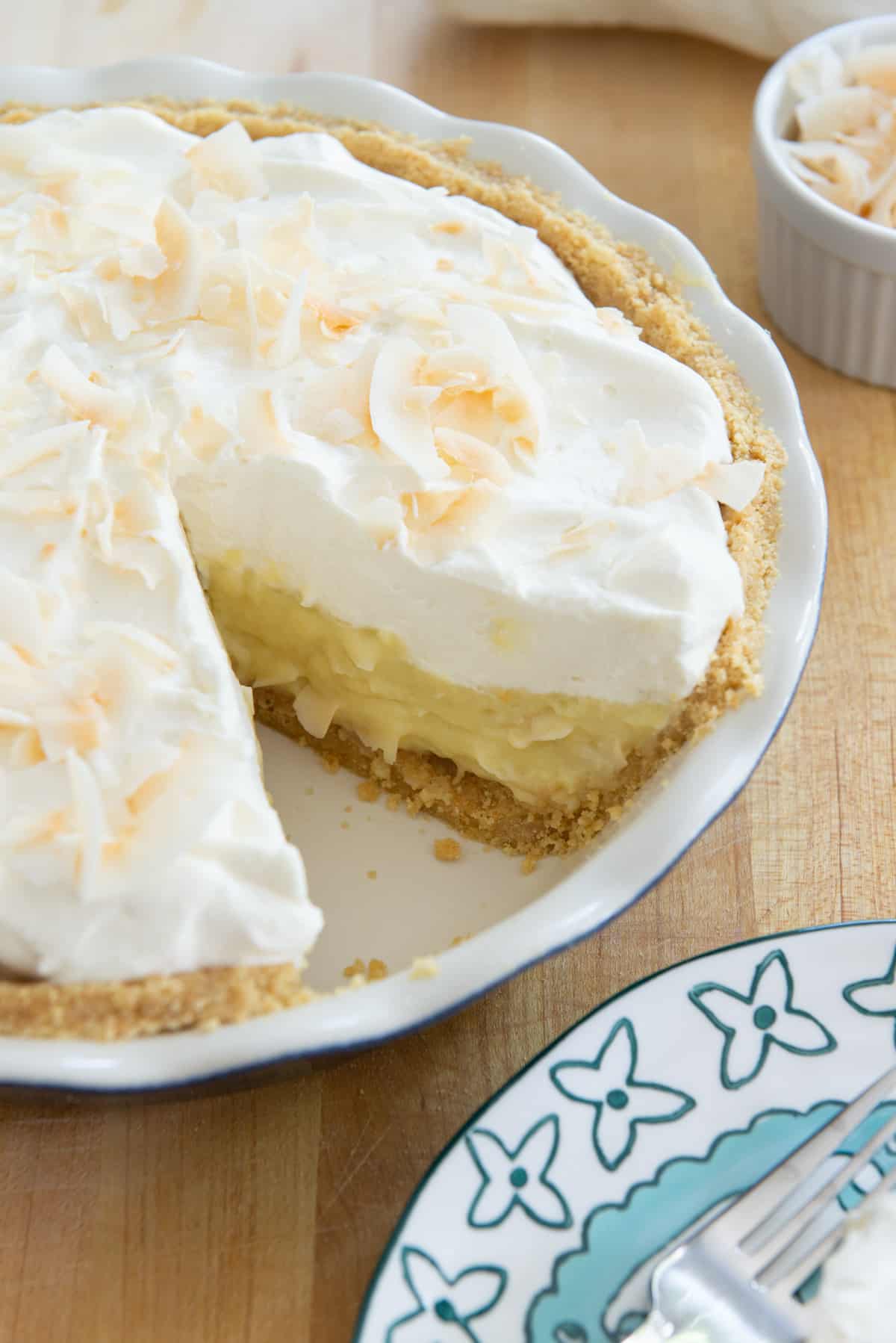
You can also sprinkle it over ice cream, add some to the top of a coconut cake, mix it into a yogurt parfait, or use as a garnish for savory recipes like curries. Enjoy!
Recipe Tips and FAQ
- Make sure to keep a close eye on the oven, as sometimes the settings are not accurate, especially with older ovens.
- If you really want to use the stove top, it’s better to use the smaller pieces of shredded coconut. Make sure to stick to medium-low heat (or medium heat if your stove is wimpy, but do not go higher than this). Cook in small batches.
Did you enjoy the recipe? Please leave a 5-star rating in the recipe card below and/or a review in the comments section further down the page. Or, follow me on Facebook, Instagram or Pinterest!

Toasted Coconut
Ingredients
- 7 ounce bag unsweetened coconut flakes *
Instructions
- Preheat the oven to 300F.
- Spread the coconut flakes out evenly on a half sheet pan or rimmed baking sheet that's big enough to hold the flakes in a single even layer.
- Bake for 8 minutes, until the flakes are starting to turn golden brown on the edges and smell fragrant.
- Stir the flakes around to redistribute for even cooking, then bake for another 3-4 minutes, until the coconut flakes are more evenly golden.
- Let cool, then store in an airtight container to preserve the crisp texture.
Notes
Nutrition
Nutrition is estimated using a food database and is only intended to be used as a guideline for informational purposes.
